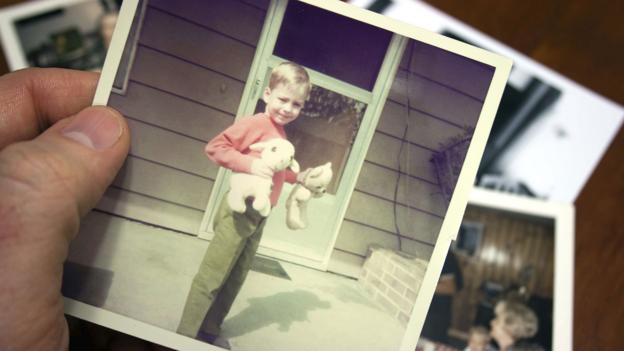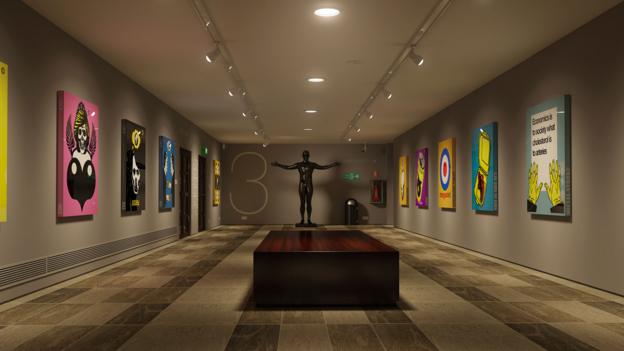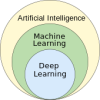A handful of people can recall almost every day of their lives in enormous detail – and after years of research, neuroscientists are finally beginning to understand how they do it.
For most of us, memory is a kind of scrapbook, a mess of blurred and faded snapshots of our lives. As much as we would like to cling on to our past, even the most poignant moments can be washed away with time.
Ask Nima Veiseh what he was doing for any day in the past 15 years, however, and he will give you the minutiae of the weather, what he was wearing, or even what side of the train he was sitting on his journey to work.
“My memory is like a library of VHS tapes, walk-throughs of every day of my life from waking to sleeping,” he explains.
Veiseh can even put a date on when those reels started recording: 15 December 2000, when he met his first girlfriend at his best friend’s 16th birthday party. He had always had a good memory, but the thrill of young love seems to have shifted a gear in his mind: from now on, he would start recording his whole life in detail. “I could tell you everything about every day after that.”
My memory is like a library of VHS tapes, walk-throughs of everyday of my life from waking to sleeping – Nima Veiseh
Needless to say, people like Veiseh are of great interest to neuroscientists hoping to understand the way the brain records our lives. Quick explanations – such as the possibility that it may be associated with autism – have proven to be unfounded, but a couple of recent papers have finally opened a window on these people’s extraordinary minds. And this research might even suggest ways for us all to relive our past with greater clarity.
Jill Price kept a diary to try to lay her intrusive memories to rest. As a bonus, her notes have now allowed scientists to verify her claims (Credit: iStock)
‘Highly superior autobiographical memory’ (or HSAM for short), first came to light in the early 2000s, with a young woman named Jill Price. Emailing the neuroscientist and memory researcher Jim McGaugh one day, she claimed that she could recall every day of her life since the age of 12. Could he help explain her experiences?
Intrigued, McGaugh invited her to his lab, and began to test her: he would give her a date and ask her to tell him about the world events on that day. True to her word, she was correct almost every time.
Luckily, Price had also kept a diary throughout that period, allowing the researchers to verify her recollections of personal incidents too; again, she was right the vast majority of the time. After a few years of these sporadic studies, they decided to give her a further, spontaneous test: “Name the dates of every single time you’ve visited our lab”. In an instant, she reeled off a list of their appointments. “None of us was able to recall this list,” McGaugh and his colleagues noted, but comparing her account with their own records, they found that she was absolutely accurate.
It didn’t take long for magazines and documentary film-makers to cotton on to her “total recall”, and thanks to the subsequent media interest, a few dozen other subjects (including Veiseh) have since come forward and contacted the team at the University of California, Irvine. During one of his visits, Veiseh’s memory proved to be so accurate that he even found himself correcting the scientists’ test about the exact date that Michael Phelps won his eighth gold medal in the 2008 Beijing Olympics.
Sometimes I don’t remember what happened five minutes ago, but I can remember a detail from 22 January 2008 – Bill, who has HSAM
Intriguingly, their memories are highly self-centred: although they can remember “autobiographical” life events in extraordinary detail, they seem to be no better than average at recalling impersonal information, such as random lists of words. Nor are they necessarily better at remembering a round of drinks, say. “Sometimes I don’t remember what happened five minutes ago, but I can remember a detail from 22 January 2008,” explains “Bill”, who asked us not to use his full name to avoid unwanted attention. And although their memories are vast, they are susceptible to some of the mistakes we all make: in 2013, Lawrence Patihis (now at the University of Southern Mississippi) and colleagues found that people with HSAM still suffer from “false memories”. They can be primed to remember world events that never actually occurred, for instance.
Clearly, there is no such thing as a “perfect” memory – their extraordinary minds are still using the same flawed tools that the rest of us rely on. The question is, how?
HSAM may be a form of expertise, like music or sport – except their specialist subject turns out to be their own life story (Credit: Getty Images)
Some clues come from observing the way their memories evolve over time. Craig Stark at the University of California, Irvine recently questioned HSAM subjects one week, one month and one year after events in their life to see how their memories of events change over time. He thought, for instance, that HSAM subjects begin at a richer starting point, encoding more details as soon as an event has occurred. In reality, the differences only emerged months down the line: whereas for the other subjects, they had become faded and vague, for the HSAM subjects the events were still just as fresh. “It must be something about the way they hold on to the information that the rest of us aren’t doing,” Stark says.
Disappointingly, brain scans have failed to reveal any huge anatomical differences that might explain how this occurs. “It’s not like they had some extra lobe or a ‘third’ hemisphere of the brain,” says Stark. True, they could spot some signature characteristics, such as additional wiring between the frontal lobes (involved in analytical thought) and the seahorse-shaped hippocampus towards the side of the skull, an area thought to be our memory’s “printing press”. But it was perfectly possible that this was the result of their skills, and not the cause: after all, practising any skill, be it music, sport, or a language, can lead the brain to build more efficient neural networks. “It’s a chicken or egg kind of thing,” says Stark.
They scored particular highly on ‘fantasy proneness’ and ‘absorption’
Instead, the key seems to lie in more general thinking patterns and habits. Patihis recently profiled around 20 people with HSAM and found that they scored particularly highly on two measures: fantasy proneness and absorption. Fantasy proneness could be considered a tendency to imagine and daydream, whereas absorption is the tendency to allow your mind to become immersed in an activity – to pay complete attention to the sensations and the experiences. “I’m extremely sensitive to sounds, smells and visual detail,” explains Nicole Donohue, who has taken part in many of these studies. “I definitely feel things more strongly than the average person.”
Unknown triggers
The absorption helps them to establish strong foundations for a recollection, says Patihis, and the fantasy proneness means that they revisit those memories again and again in the coming weeks and months. Each time this initial memory trace is “replayed”, it becomes even stronger.
In some ways, you probably go through that process after a big event like your wedding day – but the difference is that thanks to their other psychological tendencies, the HSAM subjects are doing it day in, day out, for the whole of their lives.
Not everyone with a tendency to fantasise will develop HSAM, though, so Patihis suggests that something must have caused them to think so much about their past – as opposed to films or aeroplanes, say. “Maybe some experience in their childhood meant that they became obsessed with calendars and what happened to them,” says Patihis. The subjects themselves find it hard to put their finger on the trigger, however; Veiseh, for instance, knows that his HSAM began with meeting his first girlfriend, but he still can’t explain why she set it off.
Given these findings, could we all train ourselves to think and remember like Veiseh, Donohue or Bill? Stark is intrigued by the idea. Some of his colleagues are hoping to launch an app that may encourage the active, detailed rehearsal seen in the HSAM subjects, to see if it improves later recollection. There’s already some evidence that this may be effective: one recent study found that simply replaying an event in your head for a few seconds, immediately after it had happened, led to stronger recall a week later. (Read BBC Future’s “Improve your memory in 40 seconds”.)
In reality, Stark compares it to exercise: the idea of a super memory might be nice in theory but harder to put in practice. “Look, many of us could also have fit, athletic bodies. There are great motivations – yet few of us do it.”
Imagine being able to remember every painting, on every wall, in every gallery space, between nearly 40 countries – Nima Veiseh
The people with HSAM I’ve interviewed would certainly agree that it can be a mixed blessing. On the plus side, it allows you to relive the most transformative and enriching experiences. Veiseh, for instance, is something of a polymath. He travelled a lot in his youth to compete in international taekwondo competitions, but in his spare time, he visited the local art galleries, and perhaps because his love of art is entwined with his identity, the paintings are now lodged deep in his autobiographical memories.
“Imagine being able to remember every painting, on every wall, in every gallery space, between nearly 40 countries,” he says. “That’s a big education in art by itself.” With this encyclopaedic knowledge of the history of art, he has since become a professional painter, under the moniker “Enigma of Newyork“. Similarly, his memory may have also aided his other career as a doctoral researcher in design and technology, he thinks, by helping him to absorb a vast body of knowledge.
One man with HSAM used his extraordinary recall to absorb thousands of paintings, which helped him become an artist in his own right (Credit: iStock)
Donohue, now a history teacher, agrees that it helped during certain parts of her education: “I can definitely remember what I learned on certain days at school. I could imagine what the teacher was saying or what it looked like in the book.”
Not everyone with HSAM has experienced these benefits, however; Price “hated” school and as a result, seemed not to be able to access the information she had learned. Clearly, the information still has to be personally important for it to stick.
It can be very hard to forget embarrassing moments. You can’t turn that stream of memories off, no matter how hard you try – Nicole Donohue
Viewing the past in high definition can also make it very difficult to get over pain and regret. “It can be very hard to forget embarrassing moments,” says Donohue. “You feel same emotions – it is just as raw, just as fresh… You can’t turn off that stream of memories, no matter how hard you try.” Veiseh agrees: “It is like having these open wounds – they are just a part of you,” he says.
This means they often have to make a special effort to lay the past to rest; Bill, for instance, often gets painful “flashbacks”, in which unwanted memories intrude into his consciousness, but overall he has chosen to see it as the best way of avoiding repeating the same mistakes. “Some people are absorbed in the past but not open to new memories, but that’s not the case for me. I look forward to the each day and experiencing something new.”
Veiseh even thinks his condition has made him a kinder, more tolerant person. “Some say ‘forgive and forget’, but since forgetting is a luxury I don’t have, I need to learn to genuinely forgive,” he says. “Not just others, but myself as well.”
—
Source: (BBC, David Robson)





































Leave a Comment
You must be logged in to post a comment.